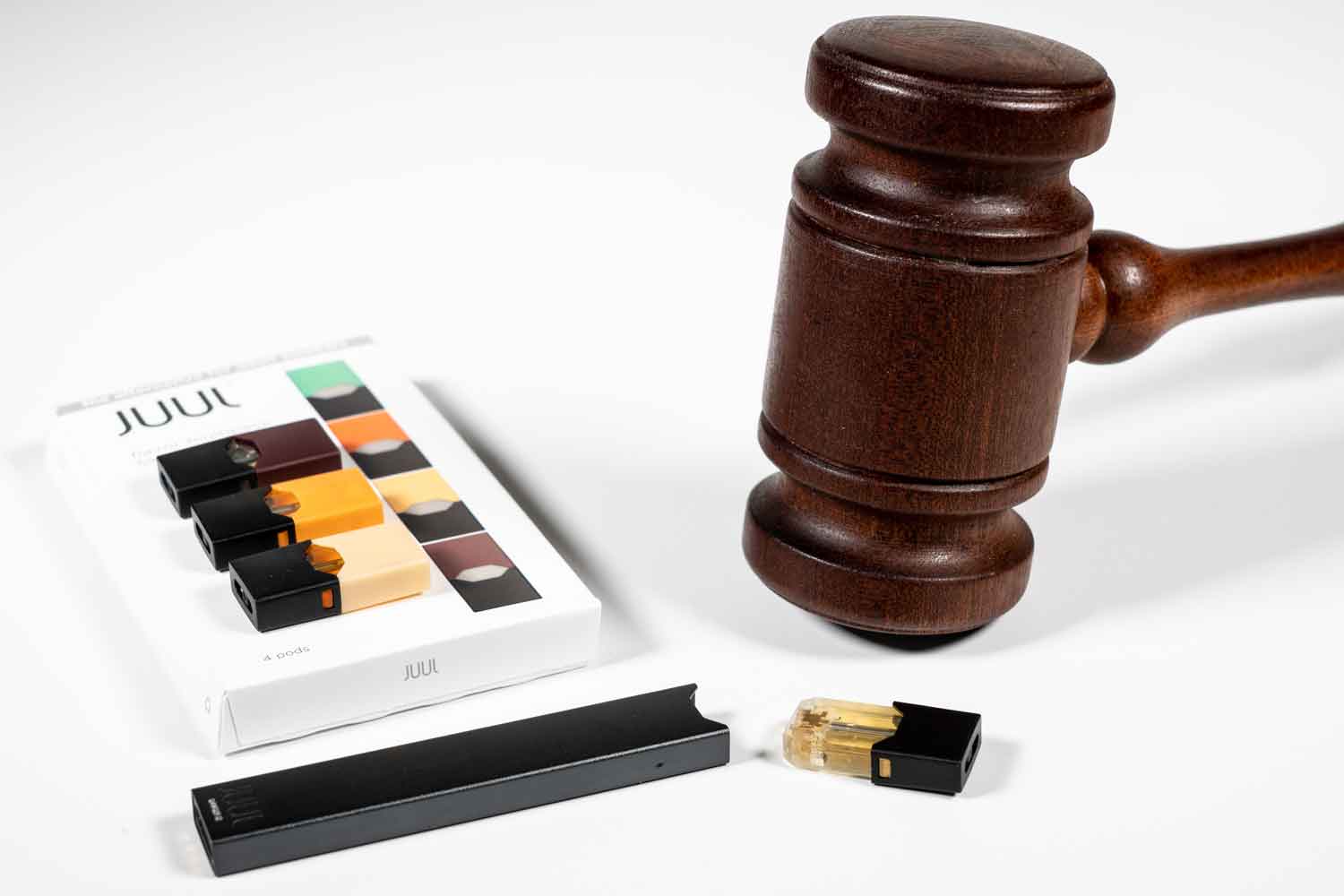Juul Settles Teen Vaping Investigation With 33 States
- Litigation News This Week
- September 6, 2022
- 3 minutes read


Juul Labs will pay nearly $440 million to settle a two-year investigation by 33 U.S. states into the marketing of its vaping products, which critics have blamed for sparking a surge in underage vaping, reports AP.
The probe found that Juul marketed its e-cigarettes to underage teens with launch parties, product giveaways and ads and social media posts using youthful models.
“Through this settlement, we have secured hundreds of millions of dollars to help reduce nicotine use and forced Juul to accept a series of strict injunctive terms to end youth marketing and crack down on underage sales,” Connecticut Attorney General William Tong said on Sept. 6 in a statement.
In reality, most of the limits imposed by the settlement won’t affect Juul’s practices, which halted use of parties, giveaways and other promotions after coming under scrutiny several years ago.
While Juul’s early marketing focused on young, urban consumers, the company has since shifted to pitching its product as an alternative nicotine source for older smokers.
“We remain focused on our future as we fulfill our mission to transition adult smokers away from cigarettes—the number one cause of preventable death—while combating underage use,” the company said in a statement.
While resolving one of the biggest legal threats, Juul Labs still faces nine separate lawsuits from other states. Additionally, Juul faces hundreds of personal suits brought on behalf of teenagers and others who say they became addicted to the company’s vaping products.
The company is also in the process of appealing a marketing denial order (MDO) by the U.S. Food and Drug Administration, which, if upheld, would force its products off the market.
In June, the FDA rejected Juul Labs’ premarket tobacco product applications, saying that the company has submitted insufficient evidence that its products were appropriate for the protection of public health.
While the agency subsequently suspended its MDO, citing scientific issues in the application that warrant additional review, the agency stressed that the stay does not rescind the order.